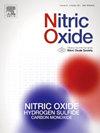Exogenous sodium nitroprusside exhibits multiple positive roles in alleviating cadmium toxicity in tobacco (Nicotiana tabacum L.)
IF 3.2
2区 生物学
Q2 BIOCHEMISTRY & MOLECULAR BIOLOGY
引用次数: 0
Abstract
As a donor of the gaseous signaling molecule nitric oxide (NO), sodium nitroprusside (SNP) has been shown to play a positive role in enhancing plant resistance to abiotic stress. However, its role in alleviating cadmium (Cd) toxicity in tobacco (Nicotiana tabacum L.) is not fully understood. This study found that Cd stress significantly inhibited tobacco growth. At the same time, 150 μM SNP was the most effective concentration in alleviating Cd toxicity in seedlings, restoring three stress tolerance indicators—MDA, H2O2, and proline—to control levels. Exogenous SNP mitigated Cd-induced oxidative stress by promoting the accumulation of non-enzymatic antioxidants (total phenolics and flavonoids) and activating key antioxidant enzymes (SOD, CAT, POD, APX, and GR) along with their gene expression. SNP also facilitated Cd accumulation in the root cell wall and prevented Cd translocation from roots to shoots. Additionally, SNP altered Cd's subcellular distribution, promoting its sequestration in vacuoles and cell walls, which may be related to the NO-mediated upregulation of the metallothionein gene NtMT2F and the phytochelatin gene NtPCS2. The addition of SNP significantly increased the proportion of Cd in less toxic chemical forms, with the residual Cd fraction in the Cd + SNP group reaching 7.30 %, higher than the 4.86 % in the Cd-only group. Furthermore, exogenous SNP counteracted Cd's inhibition of nitrate reductase (NR) activity, promoting endogenous NO production. This study systematically reveals the positive roles of exogenous SNP in mitigating Cd toxicity in tobacco, offering valuable insights for producing low-Cd tobacco.
外源性硝普钠在缓解烟草(Nicotiana tabacum L.)镉毒性中发挥多重积极作用
作为气态信号分子一氧化氮(NO)的供体,硝普钠(SNP)已被证明在增强植物对非生物胁迫的抵抗力方面发挥了积极作用。然而,它在减轻烟草(Nicotiana tabacum L.)镉(Cd)毒性方面的作用还不完全清楚。本研究发现,镉胁迫会明显抑制烟草的生长。同时,150 μM SNP 是缓解烟苗镉毒性的最有效浓度,它能将三项胁迫耐受性指标--MDA、H2O2 和脯氨酸恢复到控制水平。外源 SNP 可促进非酶抗氧化剂(总酚类和类黄酮)的积累,激活关键抗氧化酶(SOD、CAT、POD、APX 和 GR)及其基因表达,从而减轻镉诱导的氧化应激。SNP 还能促进镉在根细胞壁中的积累,阻止镉从根向芽的转移。此外,SNP 还改变了镉的亚细胞分布,促进了镉在液泡和细胞壁中的螯合,这可能与 NO 介导的金属硫蛋白基因 NtMT2F 和植物螯合素基因 NtPCS2 的上调有关。加入 SNP 后,镉以毒性较低的化学形式存在的比例明显增加,Cd + SNP 组的残余镉比例达到 7.30%,高于纯 Cd 组的 4.86%。此外,外源性 SNP 抵消了镉对硝酸还原酶(NR)活性的抑制,促进了内源性 NO 的产生。这项研究系统地揭示了外源 SNP 在减轻烟草镉毒性方面的积极作用,为生产低镉烟草提供了宝贵的启示。
本文章由计算机程序翻译,如有差异,请以英文原文为准。
求助全文
约1分钟内获得全文
求助全文
来源期刊

Nitric oxide : biology and chemistry
生物-生化与分子生物学
CiteScore
7.50
自引率
7.70%
发文量
74
审稿时长
52 days
期刊介绍:
Nitric Oxide includes original research, methodology papers and reviews relating to nitric oxide and other gasotransmitters such as hydrogen sulfide and carbon monoxide. Special emphasis is placed on the biological chemistry, physiology, pharmacology, enzymology and pathological significance of these molecules in human health and disease. The journal also accepts manuscripts relating to plant and microbial studies involving these molecules.
 求助内容:
求助内容: 应助结果提醒方式:
应助结果提醒方式:


